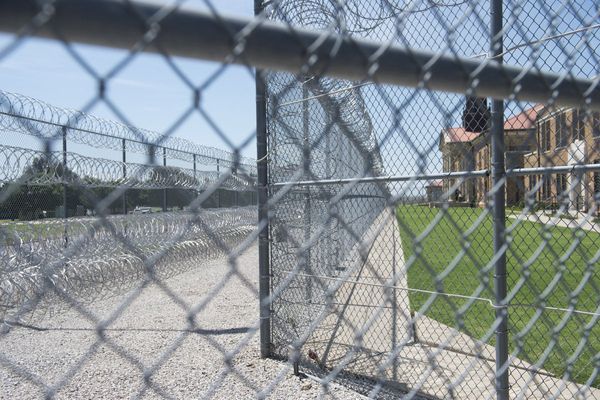Very little of what Nigel Farage set out at Oxford airport should have come as a surprise. The Reform UK leader’s stance on what he calls illegal migration has been largely consistent over many years and his speech was nothing if not well trailed – promises of immediate detentions and deportations, the UK leaving the European Convention on Human Rights (ECHR), suspending other inconvenient agreements and sidelining judges.
It was a wish-list for those wanting the UK to take a much tougher line on everything to do with asylum and migration. The announcement, then, was a matter of spelling out how a Reform government might put its plans into effect.
Mr Farage’s contention that the UK could be facing a genuine threat to public order was undoubtedly an exaggeration for political effect, but the atmosphere surrounding asylum, and in particular small boat arrivals, is more febrile – and more widespread – than for many a year. And this is not just because the week-old Epping judgment has given opponents of asylum hotels in particular a sense that protest can achieve something.
It is also because of the contrast between what the new Labour government promised on the small boats and what it appears to have delivered more than a year later. Loud talk about smashing the gangs has been followed by a more than 40 per cent increase in the number of people arriving by small boat compared with the same time last year. Hardly a dent has been made in the number accommodated in asylum hotels, and an end to their use – unless forced, perhaps, by new injunctions – is not envisaged before 2029.
Meanwhile, the number awaiting asylum decisions has only piled up still further, and the so-called “one-in, one-out” agreement with France, hailed as a landmark development, has also yet to bear fruit. As many as 100 people, it is said, are now detained, pending deportation, but the timescale remains indefinite, as in a matter of weeks – which seems out of kilter with the fanfare at the time.
For all these reasons, the measures set out by Mr Farage – and his Reform colleague Zia Yusuf, who shared the platform in Oxford – presents a serious challenge to Sir Keir Starmer and his government, who must treat it as such, rather than relying on the comparative distance before the next general election.
One way to do that is to present a forensic analysis of just what Reform’s “fag packet” measures would mean, how feasible they would actually be, and whether the country as a whole would like the results. This is not just a matter of the law – in this country and internationally. What Mr Farage is proposing would have little to no effect on the backlog of asylum applications. How many would share Mr Farage’s view that illegal arrivals should be returned even to countries where they could face torture? Would leaving the ECHR really solve the perceived problem with judges in the UK?
There were soft spots that emerged in the Farage plan during questions, too. Would he refuse Afghans, who had worked for the British as interpreters and the like? No, the UK had an obligation. Children who arrived illegally or of parents illegally here? Again, a more complicated problem.
But the government could usefully take another message from the Farage playbook. At Oxford airport, Mr Farage was on characteristic form, with an ease, a directness and a clarity of message that Sir Keir, and indeed many of his ministers, has found nigh-impossible to achieve in office. There are certainly policy tweaks that the government could make, including a timetable for ending the use of asylum hotels a lot sooner than 2029, whether or not the Epping judgment is upheld. More communal sites, such as disused army barracks and student accommodation, could be adapted for housing as a matter of urgency, to deflect public anger away from the increasingly emotive issue of hotels.
Above all, though, the government needs to make far greater efforts to present the work that it has done – in negotiating returns agreements, for instance, and clamping down on illegal working in the UK, making sure that these measures are maintained, rather than one-day headline-grabbing extravaganzas. It needs to do a much better job of explaining how the various strands fit together (if they do), and the genuine difficulties that asylum policy presents.
Sir Keir also possesses an advantage that Mr Farage does not. As prime minister, with a large majority in parliament, he actually has the power to do something. And while tensions may be rising in the UK over asylum and related matters, there is similar, and even greater pressure, in some other European countries, and a growing appetite for change. Rather than demonstratively upping and leaving the ECHR or abrogating or suspending the Geneva Conventions and other international agreements, there is an opportunity here for the UK, and a prime minister who is an international lawyer, to join a cooperative effort to bring these agreements into the modern age.
By and large, the Geneva Conventions in particular have served the world well. It is just that the world they were created for now hardly exists. What better way for the government to meet the Farage challenge than to start negotiating a new set of international protections that would help to address the genuine questions that Reform UK has raised.







